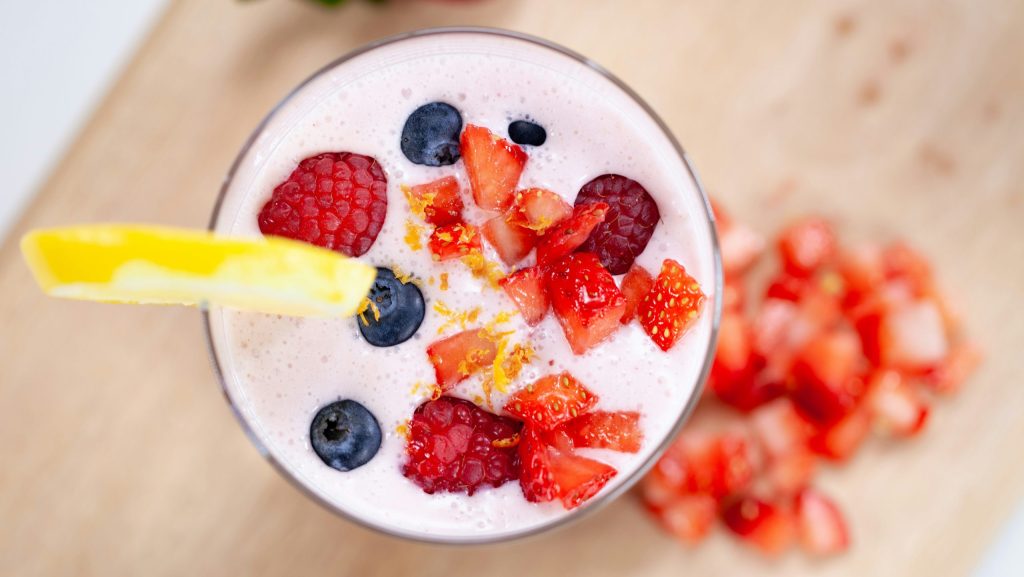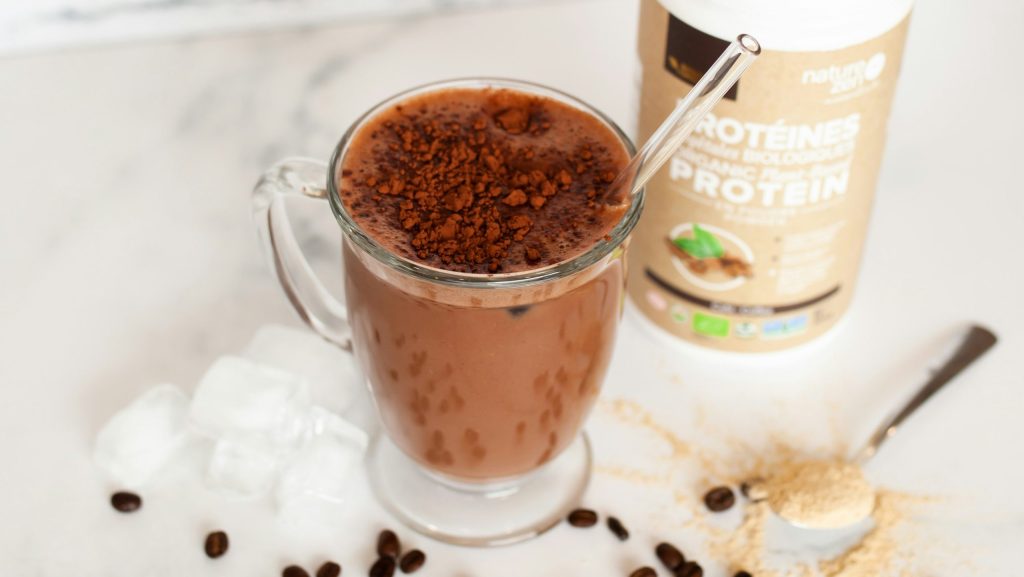Table of Contents
Nutrition plays a crucial role in achieving health and physical fitness goals. Plant-based proteins are increasingly recognized for their nutritional value and benefits for both general health and athletic performance. This recognition extends beyond vegan and vegetarian populations, appealing to a broad audience interested in health, fitness, and environmental sustainability. Plant-based diets offer numerous advantages, including the potential for improved recovery times in fitness regimes and a reduced environmental footprint compared to traditional animal-based proteins.
“Did you know that incorporating plant-based proteins into your diet can not only meet your nutritional needs but also improve muscle recovery and overall health?”
The integration of plant-based protein foods into the diet can provide all the essential amino acids necessary for muscle repair, growth, and overall health. These sources are vital for athletes and fitness enthusiasts aiming to maintain or improve their physical condition. This article addresses common concerns regarding plant-based diets, particularly the myth that they may not provide sufficient protein for active individuals. Through evidence-based insights, it demonstrates how plant-based proteins can fulfill nutritional requirements effectively.
The content focuses on several important topics:
- Introduction to Plant-Based Proteins: Outlines the benefits and nutritional importance of plant-based proteins in fitness diets.
- Top 5 Plant-Based Proteins for Fitness: Provides detailed information on the most nutritious and beneficial plant-based protein sources.
- Integrating Plant-Based Proteins in Daily Meals: Offers advice on incorporating plant-based proteins into daily nutrition effectively.
- The Role of Protein in Muscle Building and Recovery: Discusses the significance of protein in muscle development and post-exercise recovery.
- Challenges and Solutions for Plant-Based Athletes: Identifies common dietary challenges and presents solutions for athletes on plant-based diets.
This introduction sets the stage for a comprehensive discussion on the role of plant-based proteins in fitness and health. It aims to equip readers with the knowledge to make informed dietary choices that support their fitness goals and ethical considerations. The article will dispel myths about plant-based diets, highlighting how they can provide ample protein for muscle building and recovery, alongside offering practical tips for dietary planning and overcoming common challenges faced by plant-based athletes.
Introduction to Plant-Based Proteins
Plant-based proteins, derived from sources like legumes, grains, nuts, and seeds, are essential for individuals focusing on health and fitness. These proteins support a sustainable and health-conscious diet, offering benefits for vegan, vegetarian, and flexitarian preferences. This section discusses the health benefits of plant-based proteins, compares them with animal-based proteins, and provides tips for transitioning to a plant-centric diet.
Benefits of Plant-Based Proteins
Plant-based proteins contribute to lowering the risk of chronic diseases such as heart disease, type 2 diabetes, and certain cancers. This benefit is attributed to their lower saturated fat and higher fiber content. Moreover, these proteins aid in weight management through their fiber content, which promotes satiety and reduces calorie intake. Additionally, plant-based proteins enhance digestion by being easier to digest than animal proteins and supporting gut health through their fiber, which nourishes beneficial gut bacteria.
“Individuals who consume a high intake of plant-based proteins may reduce their risk of heart disease by up to 40%, according to recent studies.”
Comparison with Animal-Based Proteins
Comparing plant and animal proteins involves examining digestibility, amino acid profiles, and health impacts. Plant proteins can provide a complete amino acid profile and match the nutritional value of animal proteins when various sources are combined. Despite concerns about plant protein digestibility, appropriate preparation methods can enhance their absorption. Research indicates that plant-based diets support muscle growth and recovery effectively, which is crucial for athletes and fitness enthusiasts.
| Protein Source | Type | Protein (grams per 100g) | Fiber (grams per 100g) |
|---|---|---|---|
| Lentils | Plant-Based | 9 | 8 |
| Black Beans | Plant-Based | 8.9 | 7.5 |
| Chicken Breast | Animal-Based | 31 | 0 |
| Beef (Ground) | Animal-Based | 26 | 0 |
Transitioning Tips
Adopting a diet richer in plant-based proteins can be straightforward with proper planning. Introducing plant proteins into familiar meals and gradually increasing their presence allows for an easier dietary transition. Exploring new plant-based foods broadens culinary horizons and ensures a varied diet. Meal planning ensures diverse and adequate plant-based protein intake, facilitating a smooth transition to a plant-centric diet.
Incorporating plant-based proteins into the diet offers significant health benefits, supports weight management, and promotes better digestion. By understanding the nutritional comparisons between plant-based and animal-based proteins and utilizing transitioning tips, individuals can adopt a healthier and more sustainable diet. Plant-based proteins are crucial for anyone looking to enhance their health and fitness levels through informed dietary choices.

Top 5 Plant-Based Proteins for Fitness
Exploring plant-based nutrition for fitness reveals a variety of protein sources that support muscle building, recovery, and overall health. This section delves into the top five plant-based proteins, highlighting their nutritional value and practical applications in a fitness-oriented diet.
Lentils and Beans
Lentils and beans are crucial for muscle repair and health, with a cup of cooked lentils providing about 18 grams of protein. These legumes are also rich in fiber, iron, and nutrients, essential for energy levels and recovery. They can be easily included in soups, salads, and stews or as plant-based burger ingredients, offering texture and flavor.
Quinoa and Grains
Quinoa, a complete protein containing all nine essential amino acids, is invaluable for muscle building and repair. With about 8 grams of protein per cup, it fits well into various meals. Other grains like amaranth and buckwheat also offer proteins and nutrients, supporting energy and digestive health.
“Quinoa is one of the few plant foods considered a complete protein, containing all nine essential amino acids, making it a crucial part of a plant-based fitness diet.”
Nuts and Seeds
Nuts and seeds provide protein, healthy fats, vitamins, and minerals, making them excellent for energy and recovery. For example, almonds offer about 6 grams of protein per ounce. They can be added to smoothies, yogurts, and meals, enhancing nutrition and taste.
- Almonds: 6 grams of protein per ounce, rich in vitamin E.
- Chia Seeds: Balanced protein, omega-3 fatty acids, and fiber.
- Hemp Seeds: Contains all nine essential amino acids.
- Flaxseeds: Good source of protein, fiber, and omega-3 fatty acids.
Identifying effective plant-based proteins is key for fitness-focused diets, offering various options for nutritious and enjoyable meals. Lentils, beans, quinoa, grains, nuts, and seeds are top choices for supporting a healthy, active lifestyle, providing necessary nutrients for muscle building and recovery.
Integrating Plant-Based Proteins in Daily Meals
Plant-based diets are rich in proteins essential for health and fitness. This section provides practical advice for incorporating plant-based proteins into every meal, ensuring a balanced and enjoyable diet.
Breakfast Ideas
Protein-packed vegan breakfasts offer a nutritious start to the day. Options like protein-rich smoothies, oatmeal enhanced with nut butter, and savory tofu scrambles not only deliver essential nutrients but also keep you satiated until your next meal. Overnight oats or chia puddings are convenient, prepared ahead, and customized with various nuts and plant-based milks for extra protein.
“A tofu scramble can provide up to 20 grams of protein per serving, making it an excellent start to your day.”
Lunch and Dinner Solutions
Lunch and dinner can be both nutritious and satisfying with plant-based proteins at the core. Quinoa salads, lentil soups, and bean-based tacos offer diversity in taste and nutrition, providing ample protein and other essential nutrients. These meals are not only fulfilling but also support muscle recovery and energy levels for active individuals.
| Plant-Based Protein | Protein Content |
|---|---|
| Quinoa (1 cup cooked) | 8 grams |
| Lentils (1 cup cooked) | 18 grams |
| Black Beans (1 cup cooked) | 15 grams |
| Tempeh (100g) | 19 grams |
Snacks and Supplements
Healthy snacking and the judicious use of supplements can help maintain protein intake throughout the day. Nuts, seeds, and homemade energy balls are not only rich in protein but also provide healthy fats and fiber. Plant-based protein powders offer a convenient way to increase protein intake, easily added to smoothies or recipes.
Incorporating plant-based proteins into daily meals enhances diet quality and supports fitness goals. With a variety of plant-based protein sources available, meals can be both nutritionally balanced and delicious. This guide provides the foundation for a diet rich in plant-based proteins, suitable for anyone looking to improve their health and well-being through nutrition.

The Role of Protein in Muscle Building and Recovery
Protein is essential for athletes and fitness enthusiasts, underpinning muscle repair, recovery, and growth. This section explores the science behind protein’s role in the body, the comparative benefits of plant-based and whey proteins, and strategies for optimal protein intake timing.
Protein Needs for Athletes
Athletes’ protein requirements exceed those of less active individuals to support muscle repair and growth. The recommended daily protein intake ranges from 1.2 to 2.0 grams per kilogram of body weight, depending on exercise intensity and individual goals. This increased intake aids in muscle tissue synthesis and repairs damage incurred during physical activity.
“Studies have shown that athletes who consume protein within an hour after exercise can increase their muscle protein synthesis by over 50%.”
Plant-Based vs. Whey Proteins
The choice between plant-based and whey protein involves considering digestibility, amino acid profiles, environmental impact, and dietary preferences. Whey protein is a complete protein source, renowned for its quick absorption and high leucine content, which is crucial for muscle protein synthesis. Plant-based proteins, derived from legumes, grains, and seeds, offer a sustainable alternative rich in fiber and essential nutrients.
Whey Protein:
-
- Complete protein with all essential amino acids.
- Rapid absorption, ideal for post-workout recovery.
- High in leucine, critical for muscle protein synthesis.
Plant-Based Proteins:
-
- Can achieve a complete amino acid profile through variety.
- Rich in fiber and other nutrients beneficial for overall health.
- Lower environmental impact compared to animal-based proteins.
Timing Protein Intake
Optimizing protein intake timing is key to maximizing muscle recovery and growth. Consuming protein-rich foods or supplements shortly after workouts can significantly enhance muscle repair by providing the necessary amino acids for rebuilding muscle fibers. Evenly distributing protein consumption throughout the day ensures a constant amino acid supply to the muscles, supporting continuous growth and repair.
Understanding protein’s role in muscle building and recovery is critical for maximizing athletic performance. By carefully considering protein needs, evaluating the benefits of plant-based versus whey proteins, and timing intake appropriately, athletes can effectively support their training, enhance recovery, and achieve their fitness goals. This exploration highlights the importance of informed dietary choices in supporting physical development and athletic achievements.

Challenges and Solutions for Plant-Based Athletes
Navigating a plant-based diet as an athlete involves understanding and overcoming specific nutritional challenges to maintain optimal performance and health. This section provides evidence-based solutions for common issues faced by plant-based athletes, from protein intake and nutrient deficiencies to energy management.
Meeting Protein Requirements
Ensuring adequate protein intake is crucial for muscle repair, growth, and recovery in athletes. Plant-based diets offer a variety of protein sources that, when consumed in combination, can meet and even exceed athletic protein needs.
- Lentils: 18 grams of protein per cup (cooked)
- Chickpeas: 15 grams of protein per cup (cooked)
- Tofu: 20 grams of protein per cup
- Quinoa: 8 grams of protein per cup (cooked)
- Almonds: 6 grams of protein per ounce
Vitamin and Mineral Considerations
Athletes following a plant-based diet need to be proactive in managing their intake of certain vitamins and minerals, including vitamin B12, iron, calcium, zinc, and omega-3 fatty acids. Supplementation and strategic dietary choices can prevent deficiencies that might otherwise impact performance and recovery.
“Vitamin B12 is crucial for energy production and a deficiency can lead to significant fatigue and decrease in performance, making supplementation essential for plant-based athletes.”
Maintaining Energy Levels
Sustaining high energy levels is essential for athletic training and performance. Plant-based diets, rich in complex carbohydrates and healthy fats, provide a stable source of energy. Timing and composition of meals and snacks play a key role in energy management, ensuring that athletes have the fuel they need throughout their training and competitions.
Plant-based athletes face unique nutritional challenges, but with informed planning and dietary strategies, these can be effectively addressed. By focusing on protein diversity, ensuring adequate intake of critical vitamins and minerals, and managing energy levels through balanced meal timing, plant-based athletes can achieve optimal performance and health. This comprehensive approach allows athletes to leverage the benefits of a plant-based diet while minimizing potential drawbacks, supporting both their fitness goals and ethical values.
Conclusion: Nutrition and Plant-Based Proteins in Fitness
In reflecting on the comprehensive exploration of integrating plant-based nutrition within a fitness-focused lifestyle, it’s evident that strategic dietary choices play a crucial role in achieving optimal health and performance outcomes. This conclusion synthesizes the article’s insights, offering a roadmap for individuals looking to harness the benefits of plant-based proteins in their fitness routines.
Key Insights from the Article
- Foundation of Plant-Based Proteins: Essential for health, enhancing recovery, and promoting environmental sustainability.
- Top Plant-Based Proteins: Lentils, beans, quinoa, nuts, and seeds are highlighted for their nutritional value and contribution to fitness goals.
- Incorporating Proteins into Meals: Practical tips are provided for maintaining a balanced and enjoyable plant-based diet.
- Role of Protein in Fitness: The importance of protein in muscle building and recovery is emphasized, with a comparison between plant-based and whey proteins.
- Addressing Challenges for Plant-Based Athletes: Solutions for meeting protein requirements, vitamin and mineral supplementation, and energy level maintenance are discussed.
This comprehensive guide has underscored the importance of plant-based proteins in supporting not only individual health and performance but also global sustainability efforts. By adopting a diet rich in diverse plant-based proteins, athletes and fitness enthusiasts can meet their nutritional needs, optimize their performance, and contribute to a healthier planet.
“Start integrating these strategies into your daily routine to build strength, enhance recovery, and achieve your health goals. The path to peak performance is not just what you do in the gym but also what you put on your plate.”
The strategies and insights presented throughout this article offer a clear path forward for those looking to integrate plant-based nutrition into their fitness regimens. With careful planning and informed choices, the transition to a plant-based diet can be both successful and rewarding, providing a solid foundation for achieving and sustaining peak physical condition.
As we conclude, the message is clear: the integration of plant-based nutrition within a fitness lifestyle is not only feasible but also highly beneficial. The journey toward optimal health and fitness, powered by plant-based proteins, is a testament to the power of dietary choices in shaping our bodies and the world around us. Embracing plant-based nutrition offers a sustainable, healthful approach to fitness that aligns with broader goals of wellness and environmental stewardship.
Citations: